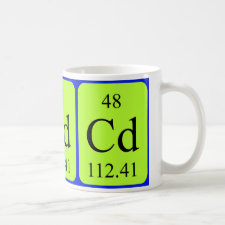
Authors: Lu ZY, He F, Hsieh CY, Wu XY, Song MS, Liu XL, Liu Y, Yuan SQ, Dong HJ, Han S, Du P, Xing GZ
Article Title: Magnetic Hierarchical Photocatalytic Nanoreactors: Toward Highly Selective Cd2+ Removal with Secondary Pollution Free Tetracycline Degradation.
Publication date: 2019
Journal: ACS Applied Nano Materials
Volume: 2
Issue: (3)
Page numbers: 1664-1674.
DOI: 10.1021/acsanm.9b00113
Abstract: In the present work, a new type of ecofriendly and recyclable magnetic hierarchical porous Cd2+ imprinted photocatalytic nanoreactors (MHP-Cd) are developed by utilizing the ion imprinting technique. Owing to numerous Cd2+ cavities generation and corresponding high adsorption capacity of Cd2+ of 154.99 mg/g in the imprinted layer, the as-prepared nanoreactors exhibit excellent selectivity of Cd2+ adsorption under corroboration of enhanced kions of Cd2+ to other ions [kions(Cd2+/Fe3+) = 2.836, kions(Cd2+/Cu2+) = 2.303, and kions(Cd2+/Zn2+) = 3.064]. Importantly, with coexistence of mesoporous and sodium pyrrolidone carboxylate, i.e., light transmittance materials, toxic tetracycline can easily contact with CdS and most of the light is amenable to being adsorbed by CdS, consequently promoting higher photocatalytic activity for degradation of tetracycline (i.e., degradation rate reaches 75.32%). Such developed MHP-Cd photocatalysts demonstrate a highly selective adsorption of Cd2+ and simultaneous tetracycline degradation with effective inhibition of the secondary pollution. With a promoted stability for recycling, our work provides a new promising technique for environment-friendly selective adsorption of targeted heavy metal ions and synchronous degradation of antibiotic containment in mixed water environments
Template and target information: cadmium ion, Cd(II)



Join the Society for Molecular Imprinting

New items RSS feed
Sign-up for e-mail updates:
Choose between receiving an occasional newsletter or more frequent e-mail alerts.
Click here to go to the sign-up page.
Is your name elemental or peptidic? Enter your name and find out by clicking either of the buttons below!
Other products you may like:
 MIPdatabase
MIPdatabase









